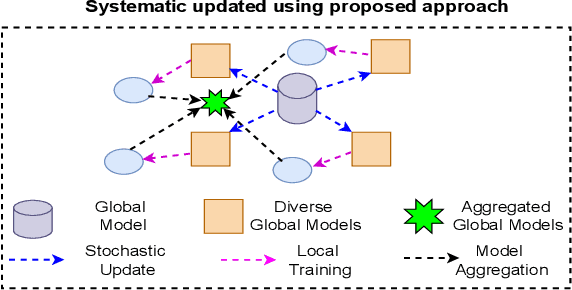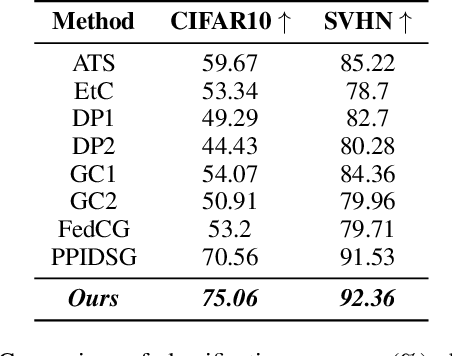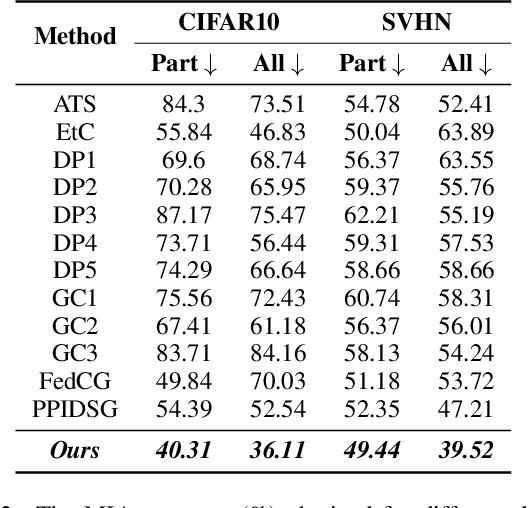Secure Generalization through Stochastic Bidirectional Parameter Updates Using Dual-Gradient Mechanism
Paper and Code
Apr 03, 2025



Federated learning (FL) has gained increasing attention due to privacy-preserving collaborative training on decentralized clients, mitigating the need to upload sensitive data to a central server directly. Nonetheless, recent research has underscored the risk of exposing private data to adversaries, even within FL frameworks. In general, existing methods sacrifice performance while ensuring resistance to privacy leakage in FL. We overcome these issues and generate diverse models at a global server through the proposed stochastic bidirectional parameter update mechanism. Using diverse models, we improved the generalization and feature representation in the FL setup, which also helped to improve the robustness of the model against privacy leakage without hurting the model's utility. We use global models from past FL rounds to follow systematic perturbation in parameter space at the server to ensure model generalization and resistance against privacy attacks. We generate diverse models (in close neighborhoods) for each client by using systematic perturbations in model parameters at a fine-grained level (i.e., altering each convolutional filter across the layers of the model) to improve the generalization and security perspective. We evaluated our proposed approach on four benchmark datasets to validate its superiority. We surpassed the state-of-the-art methods in terms of model utility and robustness towards privacy leakage. We have proven the effectiveness of our method by evaluating performance using several quantitative and qualitative results.
 Add to Chrome
Add to Chrome Add to Firefox
Add to Firefox Add to Edge
Add to Edge